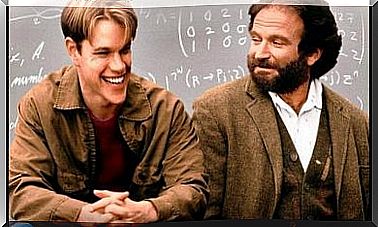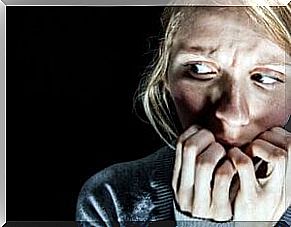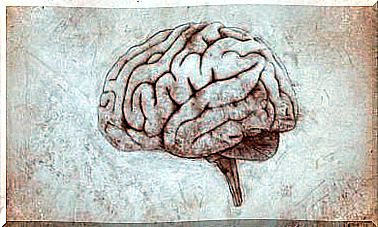The Mysteries Hidden In Our Dreams
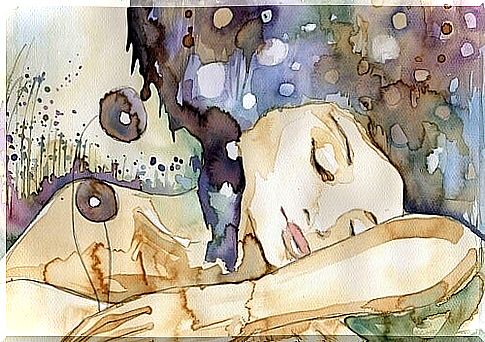
Some people choose not to pay attention to their dreams, while for others they are very important. Still others, however, believe that dreams are a desperate cry that wants to express what we do not say when we are awake. There are different theories and researches on the dream world and there are many hypotheses regarding what happens in our mind when we sleep.
Why do we dream? What do dreams mean? Where do the images that appear in our mind come from? How do nightmares arise? The answers are by no means simple, and many of these doubts are still awaiting adequate scientific confirmation. In this article we want to introduce you to some of the discoveries that science has made on this fascinating topic.
Dreams: much more than the REM phase
Today we don’t want to tell you about the sleep phases or the REM phase we go through when we close our eyes to rest. Rather, we will focus on what happens in our mind and on those images that appear when we sleep, and for which very often we do not find a logical explanation.
According to some studies, everything we do during the day accumulates in a specific area of our brain and, when we fall asleep, it resurfaces again, but in a confusing, symbolic and often inconsistent way. It can be news we read, a conversation with friends, a fight with our partner, a movie or something that caught our attention on the street, etc.
The images, sounds, memories and experiences mix to give shape to the dream, as if it were a “summary” of what happened to us during the day. But, of course, the dream is not composed only of such current elements. Very often it also presents elements taken from the past, events that happened a long time ago or people we have not seen for a long time, but of whom we have remembered.
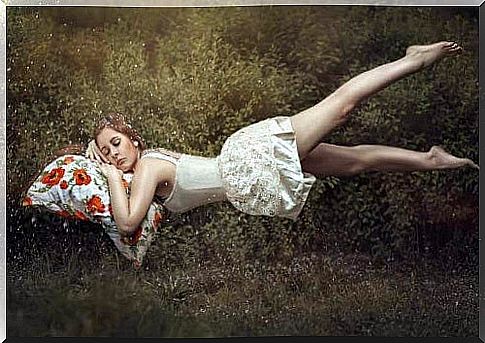
The experience of the dream
We all dream, even if we don’t always remember it. Even when we try to tell a dream or write it down in a diary, it is normal to realize that we are missing pieces and that we are unable to construct a story that makes sense or that reflects reality in a coherent way. No one has the ability to remember a dream in great detail and exactly. Although it is still very vivid in the mind, we can only rely on the elements we remember when we wake up.
According to Allan Hobson, when we dream, our mental activity is very similar to that which occurs when we act in reality, although there are elements that could never occur in the very wakefulness (e.g. seeing a deceased family member, flying like a bird or see us as children while we are adults).
Furthermore, in the dream, not only the brain comes into play, but also our feelings and even our muscles! Fear, happiness and uncertainty have the command over us. We could wake up with tachycardia, in a sea of sweat or out of breath. Yet, most of the time, dreams leave no trace on us and evaporate completely as soon as we open our eyes or hear the alarm sound.
Because? This all depends on several factors. First of all, from the sleep phase we are in to our awakening. If we were in the REM phase, the images and sensations of the dream will be sharper, more detailed and perceptive. Perhaps we will even struggle to distinguish between dream and reality. If, on the other hand, it is a dream of the NREM phase, it will contain fewer images and more typical scenes of everyday life (at work, in the kitchen, in the park, etc.).
What are dreams for?
The main goal of rest is to regenerate the body so that it recovers an optimal physiological condition. As for the psychological aspect, dreams have a strong emotional value, which we should not underestimate.
Studies have shown that dreams solidify our memory and help us fix memories more effectively. There are also theories that dreams give the brain the stimulus it needs to wake up from a deep sleep, and that they activate the “brain circuits” associated with emotions.
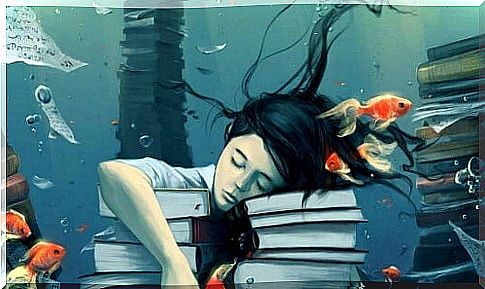
The theories on dreams
Since the studies of Sigmund Freud, who was convinced that dreams were the way we disguised our repressed desires, much progress has been made. During the twentieth century, various theories appeared on the scene which in some cases confirmed and in others denied the hypotheses of the father of psychoanalysis.
One of these is the theory of Deirdre Barret, a psychologist at Harvard University, who argued that dreams have the function of solving problems while we are remarrying . This means that the evolution of the human being has allowed him to make his brain work to find a solution to countless questions even while he sleeps. How nice it would be if it were always like this!
What is certain is that dreams, however vivid they may be, do not make great sense of logic. For them to really serve us as a solution to our problems, we should be able to analyze them in more detail. We must also take into account, however, that when we wake up we only remember a part of them. According to these theories, therefore, the dream would be an alternative way of thinking and could help us develop a “plan B” when we have to solve a problem.
On the other hand, psychiatrist Jie Zhang has proposed an alternative idea about dreams and their function. According to this expert, the brain stores memories all the time, both when we sleep and when we are awake.
This means that dreams are the same as thoughts or memories that come to our mind when we have our eyes open. Think about it for a moment: have you ever dreamed while awake? What happens when we sleep could be a similar but completely unconscious mechanism that we are unable to control.


